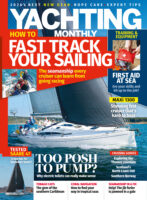E-borders will cause 'collossal queues'
Travel operators from the rail, shipping and airline industries have told MPs that the Home Office had not consulted them properly and warned that the e-borders system being brought in could lead to unacceptable delays.
They also warned it could breach EU laws on data collection.They said the flagship £750m programme to collect electronic records of everyone who enters and leaves the UK will also miss Home Office deadlines.
Travellers could face chaos during this year’s school holidays if airlines are forced to implement new electronic passport checks, MPs have been warned.
Eddie Redfern, of package holiday giant Thomson, said e-borders would cause big delays if they are introduced in the summer season, as ministers want.
Ferry operators and Eurostar chiefs also warned the home affairs committee of big increases in waiting times.
The e-borders programme, which is due to be fully in force by 2014, is aimed at tackling terrorism, crime and illegal immigration and allows passenger details to be checked against watch lists.
No practicable method of capturing ferry passengers’ passport data has yet been identified Tim Reardon, UK chamber of shipping.
Mr Redfern, head of regulatory affairs at TUI Travel, parent company of Thomson and First Choice holidays, said airlines were being asked to introduce the system at “the very time the industry said… was the wrong time of year to go live.”
He added: “Thomson Airways has told the UK Border Agency (UKBA) we will not do that because on-time performance and delivery of the holiday product is very crucial to us at this time of year.”
But he added that the company would comply with UK law.
Thomson estimates that the system will cost the airline industry around £100m per year – some of which is likely to be absorbed by airlines and tour operators – and some of which is likely to be passed on to customers in the form of higher fares.
Significant “teething troubles” meant the scheme was being rolled out in eight months instead of 14, he said.
Firms had been hit by severe operational problems and costs because “the Home Office have not done what they promised they would do”, he said.
Tim Reardon, of the UK Chamber of Shipping, warned there was “no prospect” of the scheme going live at the end of next year for ferry passengers.
He said companies were yet to find a way of scanning the passports of all passengers without causing “colossal queues” at Channel ports.
Trials showed taking the data could nearly double check-in times for the 20 million passengers who cross the Channel every year.
Firms also fear that by taking passport data they may breach French and Belgian law which states only law enforcement officials can do so.
John Powell, managing director of Dover Harbour, warned of “mile-long” queues of lorries.
Marc Noaro, customer services director of Eurostar, said his company was “extremely concerned” that the scheme would cause significant delays – and that extra waiting times could “negate” a 40 minute journey time cut gained by a £6.1bn line upgrade.
Waiting times could double at its rail terminals and cost the company “several millions of investment”, some of which could potentially be passed on to travellers.
UKBA had not responded to a letter about Eurostar’s legal concerns which was sent seven months ago.
He said there were no commercial benefits to the scheme and accused the Home Office of imposing a “one-size-fits-all” programme that was designed to work for airlines.
E-borders could make railway stations overcrowded, double check-in times, and, he said, would be difficult to set up in protected buildings such as St Pancras railway station.



